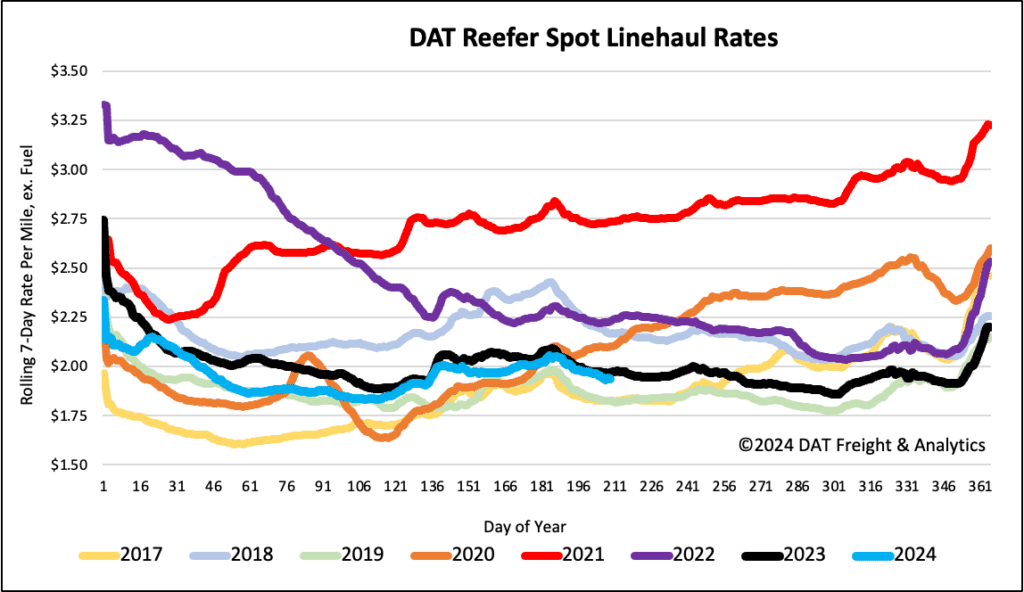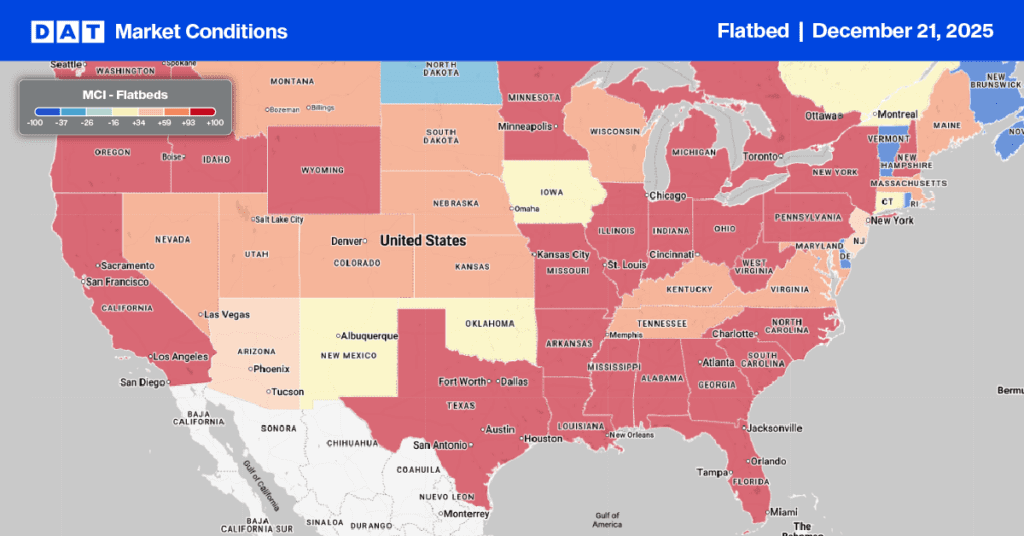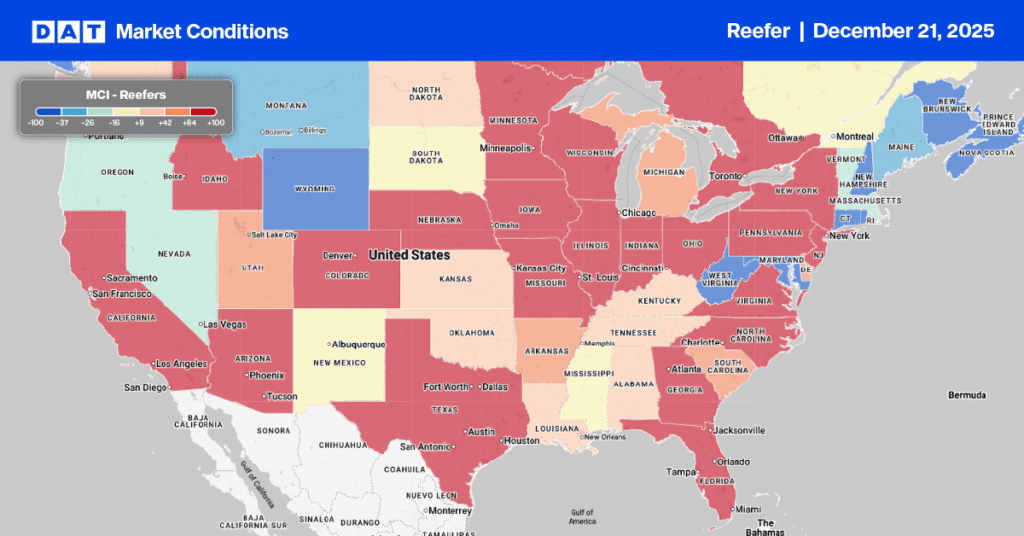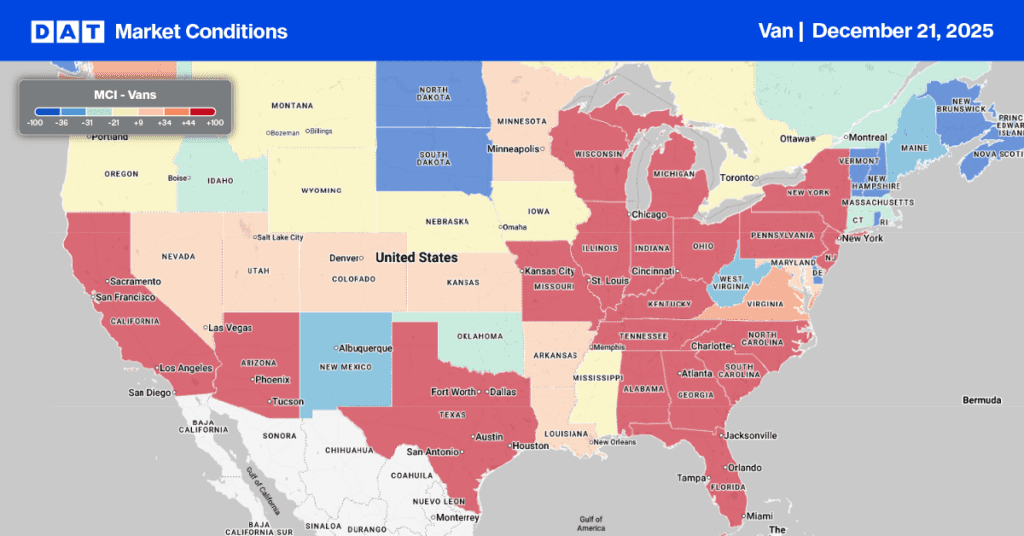The National Cherry Festival, held in Traverse City, MI, is annually rated as one of North America’s top 100 Festivals and Events by the American Bakers Association (ABA). This year, the festival is scheduled from June 29 to July 6 and is expected to welcome over 500,000 visitors. Traverse City also proudly houses the world’s largest cherry pie, a record set on July 25, 1987. The pie was 17 feet 6 inches across and 26 inches deep, weighing an astounding 28,350 pounds. Additionally, local steel companies contributed to creating a stainless-steel pie pan and a 24-foot-wide, 6-foot-high circular oven with a lid and 12-inch-thick walls to bake the pie, harnessing the power of 300 household ovens. This achievement showcases human ingenuity and engineering prowess.
Get the clearest, most accurate view of the truckload marketplace with data from DAT iQ.
Tune into DAT iQ Live, live on YouTube or LinkedIn, 10am ET every Tuesday.
The recipe for this record-breaking cherry pie, estimated to be about 14,000 times the size of an average cherry pie, included 2.5 million cherries, weighing 8,895 pounds, 7,478 pounds of sugar, 966 pounds of flour, 855 pounds of corn starch, 1.17 pounds of vegetable oil, and 45 pounds of salt. The crust was made from 1,081 pounds of flour, 703 pounds of shortening, 226 pounds of water, 32 pounds of salt, and 54 pounds of dextrose. A 35-ton crane was used to lift the pie 9 feet above the ground and place it securely inside the oven for almost two hours at an average temperature between 375 and 425 degrees.
Load-to-Truck Ratio
The volume of reefer load postings decreased by 3% week over week and 14% year over year due to a slower week reported by the USDA. Truckload produce volumes last week were 8% lower than the previous year, with California’s volume down by a similar amount. This is significant because California currently produces around 40% of the national weekly volume. Carrier equipment posts were 8% lower last week and 21% lower year over year, leading to a 4% increase in the reefer load-to-truck ratio (LTR) to 6.35.
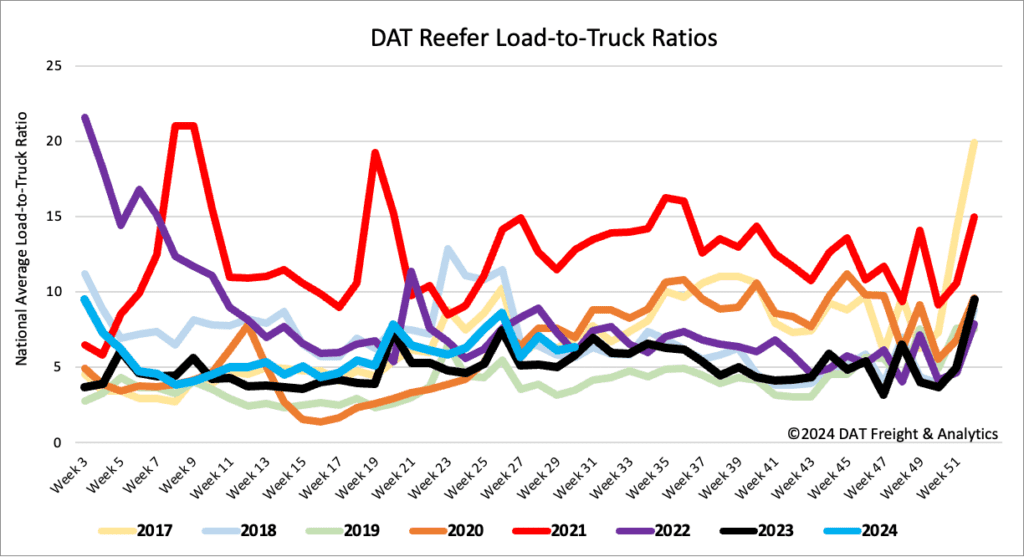
Spot rates
After remaining flat for the prior two weeks at around $2.00/mile, the national average reefer linehaul rate dropped by $0.05/mile last week. At just under $1.96/mile, reefer linehaul rates were $0.03/mile lower than last year and $0.02/mile lower than the 3-month trailing average. The loosening of reefer capacity has undoubtedly been impacted by some of the lowest truckload produce volumes reported by the USDA in ten years following last week’s 13% w/w decrease. Last year, produce volumes decreased by 11% in the three weeks after Independence Day; this year, volumes have plunged by 26% over the same timeframe.
